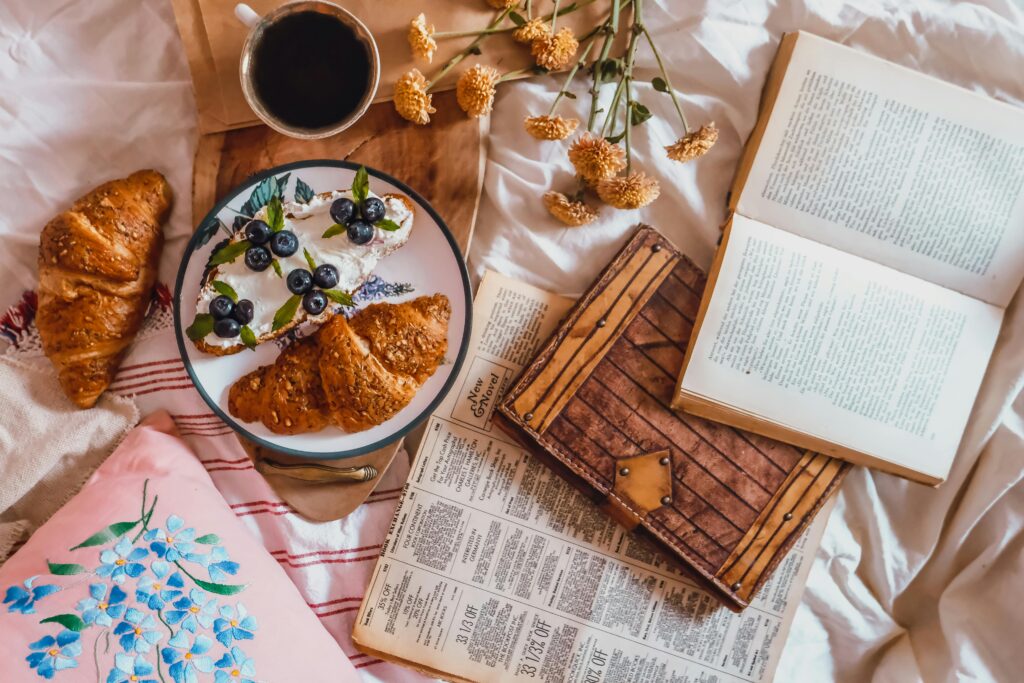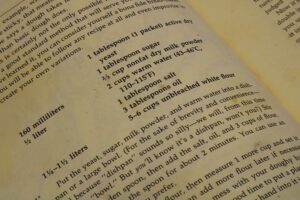On a recent visit to my local bookshop, a number of food-themed autobiography titles – Taste, Toast, Glutton, Appetite, Hungry, Relish and several others – leapt out at me. Largely, these are not the memoirs of celebrity chefs but of actors, comedians, journalists and politicians who have looked back on their lives through a particular gaze, and, when the stuff of life boils right down, it would seem that almost everyone’s eyes are bigger than their bellies! We all have something to say about food and what it means to us, and, by the looks of the genre’s popularity, we’re quite interested in hearing about what everyone else is having for tea tonight too.
From turkey farmers to burger-chain owners, food is the foundation of many of our authors’ life stories. We’ve had some spectacular foodie memoirs from chefs, containing fabulous stories of cooking for whole armies and delivering pastries to Brigitte Bardot in Paris, and from a restaurateur who served a near-silent restaurant full of subdued diners on the night when JFK was assassinated. But, many of the food memories we hear – such as those of weekly spaghetti dinners in 1950s Brooklyn and of learning to make jam in 1930s Hampshire – are simpler and more homely than that.
Connections and catastrophes
Memories of food that have a sense of routine or familiarity seem to be particularly comforting. A recent author shared that, when he was a boy in Mexico, a tin of caviar was opened every Christmas, and that, subsequently, no important occasion in his life has been marked without. A previous author dedicated a whole chapter to restaurants and his preferred meals in each, complete with special, detailed and reverent mention of his very favourite, most-ordered dish – Welsh rarebit. As strange as it might sound, my mouth was watering by the end of the chapter!
Writing and reading about food creates a strong sense of connection between writer and reader, and it gives a unique understanding of the personalities at the heart of these stories. For instance, another memoirist recalled that his mother was a highly creative cook, and that whenever she made a mistake, she would reform and refashion the food into something new (and more edible). In fact, so well known was she for doing this that the author remembers his cousin once asking her, “This is great, Aunt Rosie. What was it yesterday?”
Almost every LifeBook has at least one story that picks out a special recipe, meal, dinner … or kitchen catastrophe! It made me laugh aloud to recently read of one of our author’s mishaps while working in a mission kitchen at Christmastime, when she was younger. Having prepared several two-foot-wide trays of braised steak bathed in gravy, with roasted potatoes and vegetables, she lifted one of the trays out of the oven, ready to serve, when she moved her hands to get a better grip on it. To her dismay, the tray tipped, and meat and gravy splattered across the recently cleaned floor. Hearing hungry feasters gathering outside the door, she and her colleague scooped the food off the lino and sheepishly served it up. After a while, there was a knock at the kitchen door; someone had detected pine-scented antiseptic in his dinner. The author, as I wager most of us would, pleaded ignorance! Sometime later, there came another knock at the door. This time, it was a man saying that he’d never had such a lovely meal! It just goes to show how deeply personal our sense of taste is.
Heritage and holiness
Notably, food often holds special significance for our American authors whose families landed at Ellis Island at the turn of the last century. Food often serves as a tangible connection to heritage left behind and, for their ancestors who fled deprived and famished nations, it was a way to demonstrate the continuance of their love and affection.
The theme of a lack of food, in times of rationing, for instance, also crops up regularly. One author recently recounted her memories of the day on which sweet rationing ended in Britain, and everyone on the street flocked to the sweet shop to stock up on gobstoppers and sherbet lemon!
For the same reasons of absence, lack or struggle, food is often considered holy. Many authors discuss food in relation to religious festivals, be they the Easter lamb after Lenten fasting, the Exodus story at Passover Seder or Eid al-Fitr feasts after Ramadan. Often, it’s the practice of sharing a meal, rather than the food itself, that gives an occasion its reverence, religious or otherwise.
Like many, my family has always observed ‘Stir-Up Sunday’ – the Sunday before the season of Advent – when we get together to make our Christmas cake. The tradition may well have its roots in religion, but, for me, the sanctity of this practice comes from knowing that the women of my family have done this for at least 100 years. (We know this because we work from my grandmother’s grandmother’s recipe!) Each year, without fail, my grandma tells me the same story about visiting a shop on Blackett Street, Newcastle, to buy the dry ingredients for the recipe, which, during the war, her mother and grandmother would save up coupons for together. The shop, she recalls, was magical: small, strange and dark, with the shopkeepers scooping out quantities of spices and dried goods from the deep wooden drawers of cabinets that lined the shop walls. The fact that this cake was still important to them, even in a time when their city was being bombed to bits around them, and that it was an event that had to go ahead come what may, gives it so much more meaning to me.
The prompting of memory
As a consequence, whenever an author mentions a family recipe, I encourage them to include it in their LifeBook as an appendix, to share with their readers. How special it is to be able to pass down a memory that your children, grandchildren and (in my case, at least!) great-great-grandchildren can recreate for themselves – an heirloom that doesn’t have to be fought over and that can be enjoyed again and again! Perhaps, one day, we’ll be able to create a LifeBook Memoirs community cookbook in which we share flavours from around the world and back again, telling a collective social history of the twentieth century and beyond.
The son of one author once suggested to me that starting each interview with a bottle of champagne would bring out his parents’ best stories in their interviews. While, perhaps unfortunately, that wasn’t feasible, the idea of food and drink prompting memory certainly has merit. At caveman level, we are wired to form long-term memories associated with flavour, and these can be powerful cues for telling stories.
The effect of taste and smell in relation to elder adults’ memories and emotional connections is being studied by researchers. Flavour memory has been clearly shown to evoke autobiographical memories, and, for people with Alzheimer’s disease, research has shown that these sensory cues increase the number of emotional and specific memories from both childhood and adulthood that are recalled. Interestingly, the research also highlighted the fact that ageing reduces the recall of memories and that this leads to a diminished sense of self. Frequently sharing personal memories is not only beneficial to the reader or listener, therefore, but crucial to the storyteller too.
Writing it down
Sometimes, it’s the dining room rather than the food itself that sets the stage for stories to be told. The Spanish word sobremesa relates to that wonderful time at the end of meals with family or old friends when sauce-smeared dishes lie scattered across the table and the dregs of a bottle of wine are being savoured. It is in these moments that long-forgotten reminiscences and anecdotes urge to be told and told again.
It is in twilight times such as these that many of our authors first start to think about writing some of their memories down … or about setting the record straight after hearing someone else’s version of events!
So, the next time you bake a batch of your grandmother’s cookies, stir the goulash recipe you know by heart or share stories around a dinner table but run out of time to tell them all, think of who else might want to consume these tasty morsels of your life story. And then start writing for them.
Written by Isabella Samuels, LifeBook Memoirs editor




